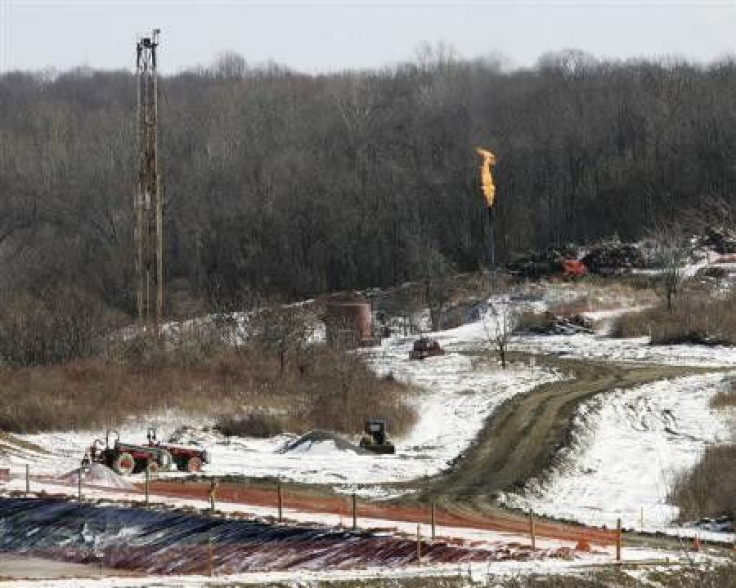New Jersey Adopts One-Year Fracking Ban

New Jersey lawmakers passed a one-year ban late Monday on the controversial natural gas extraction technique known as hydraulic fracturing.
Hydraulic fracturing is the process of extracting natural gas from rock formations by blasting a cocktail of water, sand and chemicals deep underground to fracture the rock and release the natural gas. Fracturing occurs after drilling has reached the target rock formation.
Lawmakers made the ban temporary instead of permanent because last August Gov. Chris Christie conditionally vetoed a measure instituting a permanent ban.
Christie said at the time of his conditional veto a permanent ban was not appropriate as more research was needed to assess the environmental impact of hydraulic fracturing.
While I do share the sponsors' concerns about protecting our drinking water, I do not believe that the case has been made to justify a complete, permanent, statutory prohibition on fracking, read Christie's veto. He cited ongoing federal studies into a possible link between hydraulic fracturing and groundwater contamination as the basis of the veto.
Christie supports the one-year alternative.
Since August, however, the U.S. Environmental Protection Agency released a draft study of ground water contamination in Pavilion, Wyo., that for the first time linked hydraulic fracturing method to water pollution.
The EPA is also reassessing, recollecting and possibly retesting water samples from a small Pennsylvania town prompted by new-found gaps in the town's water testing data and continued claims that hydraulic fracturing contaminated domestic water wells.
New Jersey's vote is mostly symbolic because the state is not considered to have enough shale to warrant much hydraulic fracturing. Yet New Jersey has aggressively pursued laws against the practice. In late November, a bill to ban the treatment, storage or disposal of water once used to hydraulically fracture a well was passed out of the state's environmental committee, but was not voted on by legislators.
While November's vote would be a permanent ban, this week's vote leaves room for lawmakers to open New Jersey up to hydraulic fracturing if -- following the one-year ban -- New Jersey's environmental concerns are assuaged.
Like New Jersey, New York has a temporary moratorium on hydraulic fracturing.
© Copyright IBTimes 2024. All rights reserved.











